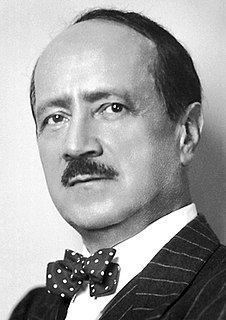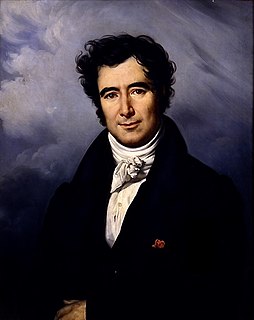A Quote by Percy Bysshe Shelley
In proportion to the love existing among men, so will be the community of property and power. Among true and real friends, all is common; and, were ignorance and envy and superstition banished from the world, all mankind would be friends. The only perfect and genuine republic is that which comprehends every living being. Those distinctions which have been artificially set up, of nations, societies, families, and religions, are only general names, expressing the abhorrence and contempt with which men blindly consider their fellowmen.
Quote Topics
Abhorrence
Among
Banished
Been
Being
Blindly
Common
Community
Consider
Contempt
Distinctions
Envy
Every
Existing
Expressing
Families
Friends
General
Genuine
Ignorance
Living
Love
Mankind
Men
Names
Nations
Only
Perfect
Power
Property
Proportion
Real
Real Friend
Real Friends
Religions
Republic
Set
Societies
Superstition
Those
True
Up
Were
Which
Will
World
Would
Would Be
Related Quotes
Love of peace is common among weak, short-sighted, timid, and lazy persons; and on the other hand courage is found among many men of evil temper and bad character. Neither quality shall by itself avail. Justice among the nations of mankind, and the uplifting of humanity, can be brought about only by those strong and daring men who with wisdom love peace, but who love righteousness more than peace.
Nothing has so exposed men of learning to contempt and ridicule as their ignorance of things which are known to all but themselves. Those who have been taught to consider the institutions of the schools as giving the last perfection to human abilities are surprised to see men wrinkled with study, yet wanting to be instructed in the minute circumstances of propriety, or the necessary form of daily transaction; and quickly shake off their reverence for modes of education which they find to produce no ability above the rest of mankind.
Every man, in proportion to his virtue, considers himself, with respect to the great community of mankind, as the steward and guardian of their interests in the property which he chances to possess. Every man, in proportion to his wisdom, sees the manner in which it is his duty to employ the resources which the consent of mankind has intrusted to his discretion.
But the idols of the Market Place are the most troublesome of all: idols which have crept into the understanding through their alliances with words and names. For men believe that their reason governs words. But words turn and twist the understanding. This it is that has rendered philosophy and the sciences inactive. Words are mostly cut to the common fashion and draw the distinctions which are most obvious to the common understanding. Whenever an understanding of greater acuteness or more diligent observation would alter those lines to suit the true distinctions of nature, words complain.
The tax upon land values is the most just and equal of all taxes. It falls only upon those who receive from society a peculiar and valuable benefit, and upon them in proportion to the benefit they receive.It is the taking by the community for the use of the community of that value which is the creation of the community. It is the application of the common property to common uses. When all rent is taken by taxation for the needs of the community, then will the equality ordained by nature be attained.
Why should not the knowledge, the skill, the expertness, the assiduity, and the spirited hazards of trade and commerce, when crowned with success, be entitled to give those flattering distinctions by which mankind are so universally captivated? Such are the specious, but false arguments for a proposition which always will find numerous advocates, in a nation where men are every day starting up from obscurity to wealth. To refute them is needless. The general sense of mankind cries out, with irresistible force, "Un gentilhomme est toujours gentilhomme.
The love, more especially, which is concerned with the good, and which is perfected in company with temperance and justice, whether among gods or men, has the greatest power, and is the source of all our happiness and harmony, and makes us friends with the gods who are above us, and with one another.
For men, as a rule, love is but an episode which takes place among the other affairs of the day, and the emphasis laid on it in novels gives it an importance which is untrue to life. There are few men to whom it is the most important thing in the world, and they are not the very interesting ones; even women, with whom the subject is of paramount interest, have a contempt for them.
The real community of man, in the midst of all the self-contradictory simulacra of community, is the community of those who seek the truth, of the potential knowers, that is, in principle, of all men to the extent they desire to know. But in fact this includes only a few, the true friends, as Plato was to Aristotle at the very moment they were disagreeing about the nature of the good.
A time will come when the science of destruction shall bend before the arts of peace; when the genius which multiplies our powers, which creates new products, which diffuses comfort and happiness among the great mass of the people, shall occupy in the general estimation of mankind that rank which reason and common sense now assign to it.
If it had not been for the pernicious power of envy, men would not so have exalted vengeance above innocence and profit above justice... in these acts of revenge on others, men take it upon themselves to begin the process of repealing those general laws of humanity which are there to give a hope of salvation to all who are in distress.
In proportion to the value of this revolution; in proportion to the importance of instruments, every word of which decides a question between power and liberty; in proportion to the solemnity of acts, proclaiming the will authenticated by the seal of the people, the only earthly source of authority, ought to be the vigilance with which they are guarded by every citizen in private life, and the circumspection with which they are executed by every citizen in public trust.





































